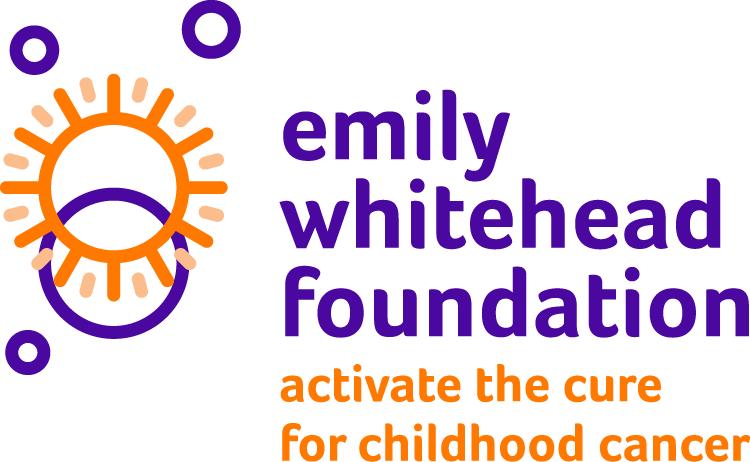A Pediatric and Young Adult Trial of Genetically Modified T Cells Directed Against CD19 for Relapsed/Refractory CD19+ Leukemia (PLAT-02)
Leukemia
0-9 years 10-17 years 18-26 years
1 2
 Biological
Biological
Patient Derived CD19 specific CAR T cells also expressing an EGFRt
Condition: CD19+ Acute Leukemia
Patients with relapsed or refractory leukemia often develop resistance to chemotherapy. For this reason, we are attempting to use T cells obtained directly from the patient, which can be genetically modified to express a chimeric antigen receptor (CAR). The CAR enables the T cell to recognize and kill the leukemic cell through the recognition of CD19, a protein expressed of the surface of the leukemic cell in patients with CD19+ leukemia. This is a phase 1/2 study designed to determine the maximum tolerated dose of the CAR+ T cells as well as to determine the efficacy. The phase 1 cohort is restricted to those patients who have already had an allogeneic hematopoietic cell transplant (HCT). The phase 2 is open to all patients regardless of having a history of HCT.
-
(2016) Acquisition of a CD19-negative myeloid phenotype allows immune escape of MLL-rearranged B-ALL from CD19 CAR-T-cell therapy.
Gardner R, Wu D, Cherian S, Fang M, Hanafi LA, Finney O, Smithers H, Jensen MC, Riddell SR, Maloney DG, Turtle CJ. Acquisition of a CD19-negative myeloid phenotype allows immune escape of MLL-rearranged B-ALL from CD19 CAR-T-cell therapy. Blood. 2016 May 19;127(20):2406-10. doi: 10.1182/blood-2015-08-665547.
Key Points:
- CD19-targeted CAR-T-cell therapy of patients with MLL-rearranged B-ALL effectively induced marrow remission of B-ALL.
- Patients with MLL-rearranged B-ALL who attain CR after CD19 CAR-T-cell therapy may be at risk for relapse with clonally related AML.
Abstract:
Administration of lymphodepletion chemotherapy followed by CD19-specific chimeric antigen receptor (CAR)-modified T cells is a remarkably effective approach to treating patients with relapsed and refractory CD19(+) B-cell malignancies. We treated 7 patients with B-cell acute lymphoblastic leukemia (B-ALL) harboring rearrangement of the mixed lineage leukemia (MLL) gene with CD19 CAR-T cells. All patients achieved complete remission (CR) in the bone marrow by flow cytometry after CD19 CAR-T-cell therapy; however, within 1 month of CAR-T-cell infusion, 2 of the patients developed acute myeloid leukemia (AML) that was clonally related to their B-ALL, a novel mechanism of CD19-negative immune escape. These reports have implications for the management of patients with relapsed and refractory MLL-B-ALL who receive CD19 CAR-T-cell therapy.
-
(2017) Intent-to-treat leukemia remission by CD19 CAR T cells of defined formulation and dose in children and young adults.
Key Points
-
Defined-composition manufacturing platform of CD19 CAR T cells contributes to >90% intent-to-treat complete remission rate.
-
Uniformity of durable persistence of CAR T cells and mitigation of antigen escape are key aspects for further optimization.
Abstract
Transitioning CD19-directed chimeric antigen receptor (CAR) T cells from early-phase trials in relapsed patients to a viable therapeutic approach with predictable efficacy and low toxicity for broad application among patients with high unmet need is currently complicated by product heterogeneity resulting from transduction of undefined T-cell mixtures, variability of transgene expression, and terminal differentiation of cells at the end of culture. A phase 1 trial of 45 children and young adults with relapsed or refractory B-lineage acute lymphoblastic leukemia was conducted using a CD19 CAR product of defined CD4/CD8 composition, uniform CAR expression, and limited effector differentiation. Products meeting all defined specifications occurred in 93% of enrolled patients. The maximum tolerated dose was 106 CAR T cells per kg, and there were no deaths or instances of cerebral edema attributable to product toxicity. The overall intent-to-treat minimal residual disease–negative (MRD−) remission rate for this phase 1 study was 89%. The MRD− remission rate was 93% in patients who received a CAR T-cell product and 100% in the subset of patients who received fludarabine and cyclophosphamide lymphodepletion. Twenty-three percent of patients developed reversible severe cytokine release syndrome and/or reversible severe neurotoxicity. These data demonstrate that manufacturing a defined-composition CD19 CAR T cell identifies an optimal cell dose with highly potent antitumor activity and a tolerable adverse effect profile in a cohort of patients with an otherwise poor prognosis. This trial was registered at www.clinicaltrials.gov as #NCT02028455.
-
Children's Hospital Oakland, Oakland, CA
Seattle Children's Hospital, Seattle, WA
